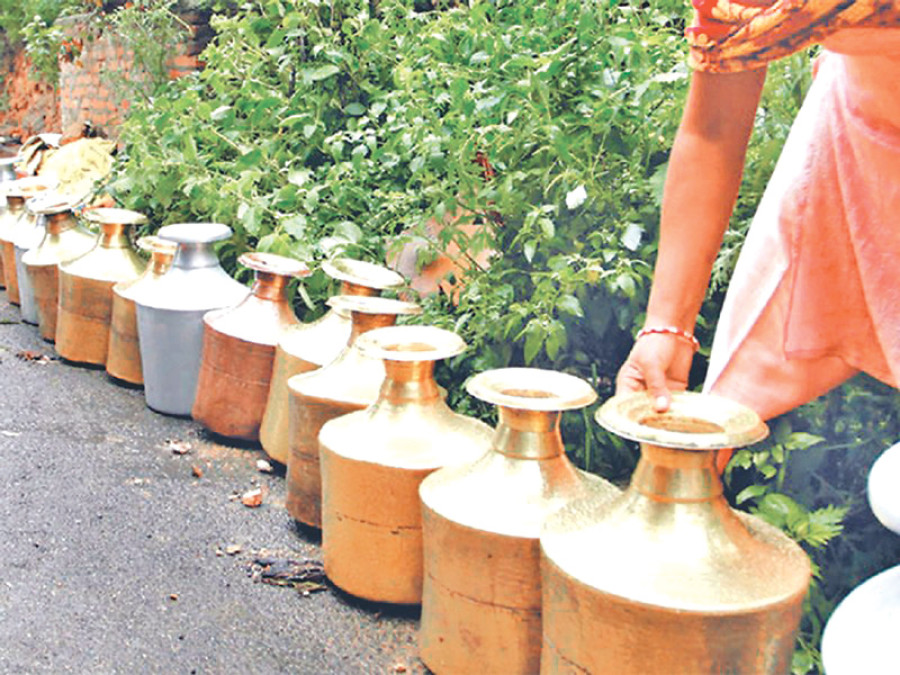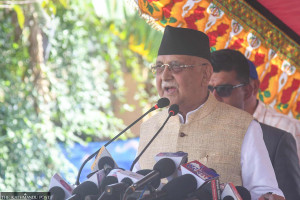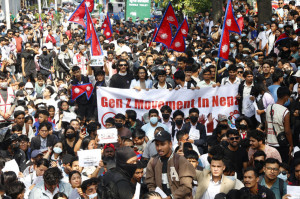Money
KUKL chair’s conduct prompts govt to take regressive step
The unprofessional conduct of the chairman of Kathmandu’s largest drinking water supplying company has prompted the government to consider taking a regressive step, which could undermine the private sector’s role in the public-private firm.
Rupak D. Sharma
The unprofessional conduct of the chairman of Kathmandu’s largest drinking water supplying company has prompted the government to consider taking a regressive step, which could undermine the private sector’s role in the public-private firm.
If the government is allowed to make such a move, the board of the Kathmandu Valley’s sole drinking water supplying company—Kathmandu Upatyaka Khanepani Limited (KUKL)—may be dominated by officials of central and local bodies, who are generally deemed as less effective and efficient than representatives of the private sector.
Such retaliation—in response to mistakes made by one person of the private sector—may erode gains made in transforming the company, which will soon have to handle 170 million litres of water being brought into the Valley per day from the Melamchi River in Sidhupalchowk, said Rajesh Kazi Shrestha, president of the Nepal Chamber of Commerce (NCC), a private sector umbrella body, which has 9 percent stake in KUKL.
The government is mulling over taking the controversial step after Suresh Kumar Basnet, chairman of KUKL, started showing high-handed attitude.
Basnet, who represents the NCC in KUKL, has been charged of using political influence to compel board members to take decisions to suit his needs; intervening in the general manager selection process; delaying decision-making process; and resorting to nepotism.
Tired of his unprofessional conduct, a majority of KUKL board members had approved a no-confidence motion filed against him in May 2015, relieving him from his duty. But Basnet moved the then Patan Appeals Court, where he lost the case.
He then took the case to the Supreme Court, which ordered KUKL to let Basnet work as a chairman until a final verdict is issued.
Since then the hearing on his case has been postponed for around 18 times. Many are now waiting for the hearing to resume, so the fate of KUKL could be determined.
But to tame people like Basnet, the Ministry of Water Supply and Sanitation, the parent body of KUKL, is planning to penalise the entire private sector. In this regard, the ministry has proposed that chairman of the drinking water supplying company be “nominated” from among representatives of entities having biggest stakes in the company.
This implies the board of directors of KUKL should always be led by representatives of either the Ministry of Water Supply and Sanitation or the Office of the Kathmandu Metropolitan City, which are the two largest shareholders in the water supplying company.
The recommendation has been made at a time when KUKL has initiated the process of amending its charter.
Ministry Joint Secretary Rajan Raj Pandey, who framed the charter amendment proposal-a copy of which has been obtained by the Post-did not want to comment.
Although the charter amendment proposal also incorporates the option of electing the chair from among the board members, inclusion of the provision on nomination of chairman from among representatives of largest shareholders may provide leeway to powerful stakeholders to call the shots, putting the private sector in the shadow.
To further undermine the role of the private sector, the charter amendment proposal says chiefs of private sector umbrella bodies that have shares in KUKL may serve as a board member for a single term on a rotation basis. Currently, the Federation of Chambers of Commerce and Industry, the Bhaktapur Chamber of Commerce and Industry, the Lalitpur Chamber of Commerce and Industry, and the Nepal Chamber of Commerce have stakes in KUKL.
“If the government’s real intention was to keep the company under its grip, what was the rationale behind converting the company into a public private partnership (PPP) entity in February 2008?” NCC President Shrestha questioned. “The government should realise that one of the purposes of PPP is to promote the private sector. But such an undemocratic move will erode the private sector’s confidence in the entire philosophy of PPP trumpeted by the government.”




 22.12°C Kathmandu
22.12°C Kathmandu














